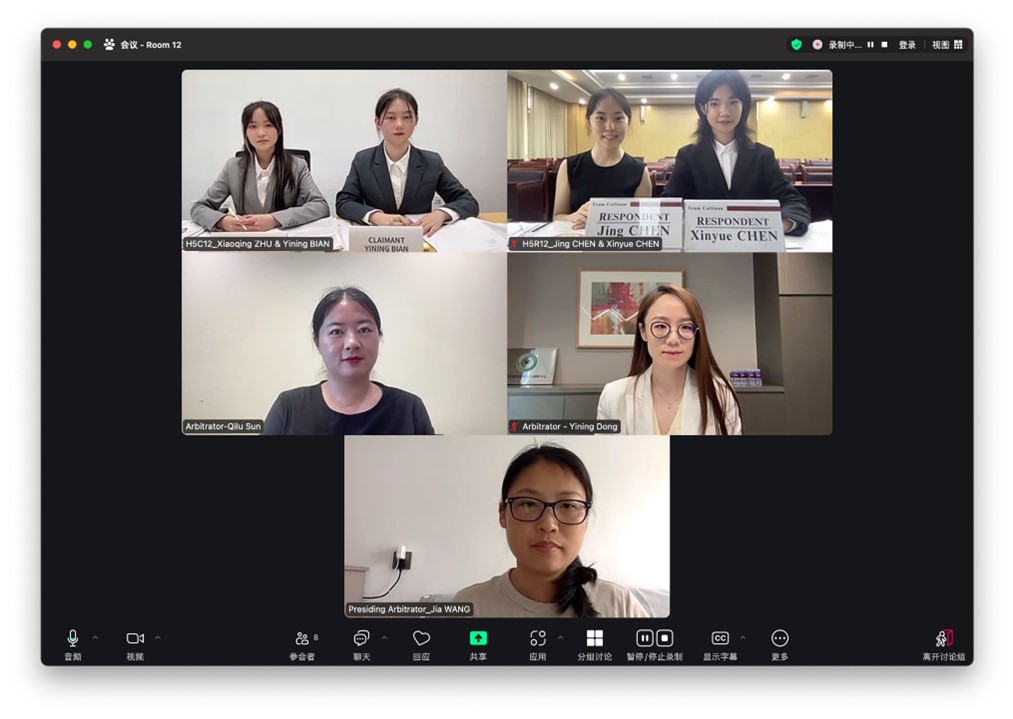From July 27 to 28, 2024, the team from the Faculty of Law of M.U.S.T. participated in the 2024 Foreign Direct Investment International Arbitration Moot (FDI Moot Shenzhen). This year, nearly 40 teams from Tsinghua University, Peking University, China University of Political Science and Law, Fudan University, the University of Hong Kong, City University of Hong Kong, and Macau University of Science and Technology took part in the competition. In addition to forming a team to compete, the Faculty of Law of M.U.S.T. continued to serve as the academic support unit for the competition, and Assistant Professor Wang Jia was once again invited to serve as a referee.
The team from the Faculty of Law of M.U.S.T. is led by Assistant Professor Wang Jia and comprises six students: Ji Zhaowei, a master’s student specializing in International Economic and Commercial Law, and undergraduate students Huang Yuyang, Zheng Zhijin, Zhu Ningyou, Wu Luolin, and Tang Yajing. After intensive preparation and trial training over the summer, Zheng Zhijin achieved an individual trial score that ranked 21st, marking the best result for M.U.S.T. in this year’s competition. The performance of the other team members during the court defense was also commendable.
FDI Moot is a prestigious global competition focused on investment arbitration. This competition primarily simulates the use of the World Bank’s International Centre for Settlement of Investment Disputes (ICSID) to resolve investment disputes between investors and host countries. Its objective is to enhance the development of legal professionals with expertise in foreign-related matters, improving the English proficiency and international legal practice skills of Chinese legal talents. The competition is conducted entirely in English.

Figure I
Assistant Professor Wang Jia served as the chief referee for the competition.
The Faculty of Law at M.U.S.T. has consistently emphasized the integration of theoretical and practical teaching. It is committed to practice-oriented educational activities, encouraging students to actively participate in international professional competitions. This approach broadens students’ global perspectives, fosters comprehensive legal practice skills, and ensures a balanced focus on both theoretical knowledge and practical abilities.




